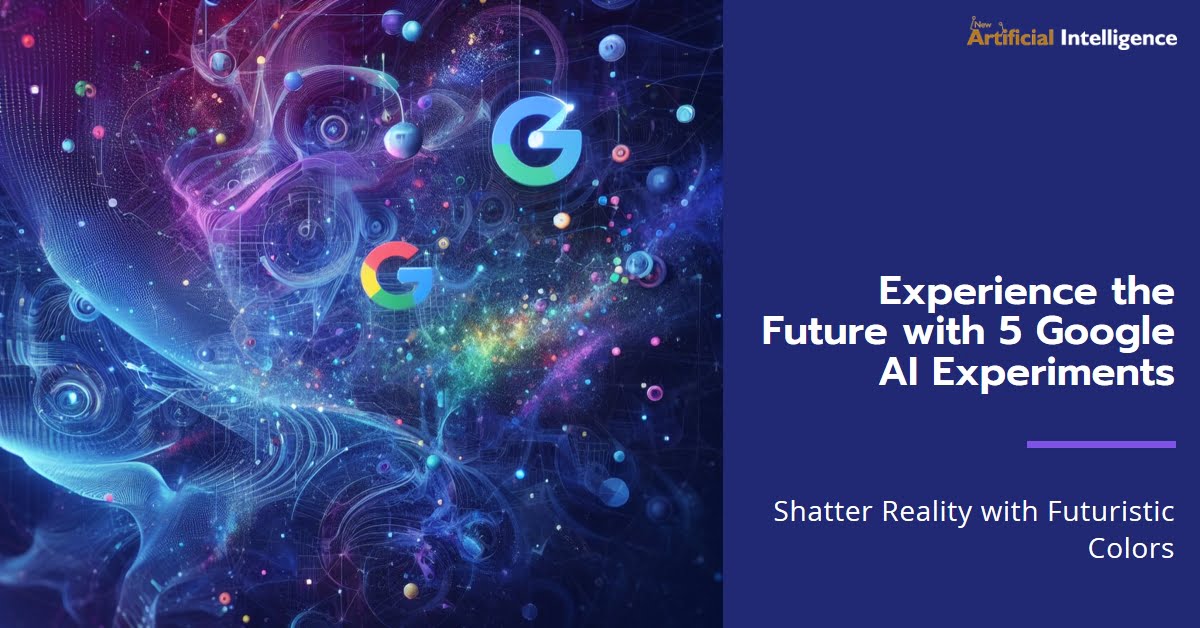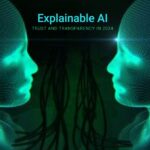5 Google AI Experiments
Table of Contents
Prepare to have your mind blown. Dive into the world of Google AI, where the line between science, fantasy, and reality blurs. Forget self-driving cars and chatbots – we’re talking about experiments that push the limitations of our knowledge of intelligence, creativity, and even the nature of consciousness. Here are 5 Google AI experiments that will make you rethink everything you know:

1. LaMDA: Chatting with the Machines of Tomorrow
Imagine conversing with a machine that’s so fluent, witty, and engaging that you forget you’re not talking to another human. Enter LaMDA (Language Model for Dialogue Applications), the brainchild of Google AI that’s redefining natural language processing. LaMDA can hold open-ended, informative conversations on virtually any topic, generating creative text formats like poems, code, scripts, musical pieces, emails, letters, etc. Hold on – did this AI write a haiku about itself?
2. AlphaFold: Unfolding the Secrets of Life
Protein folding, the process by which amino acid chains twist and turn into functional molecules, is a puzzle that has stumped scientists for decades. Imagine unlocking the secrets of protein structure and predicting how any protein will fold, revolutionizing fields like medicine and materials science. That’s what Google’s AlphaFold project is doing. By using AI to analyze massive datasets of protein structures, AlphaFold can now predict protein folding with unprecedented accuracy, opening doors to personalized medicine, enzyme design, and even synthetic biology.
3. Magenta: Where Art Meets Artificial Intelligence
Move over, Picasso. Google AI’s Magenta project explores the intersection of art and artificial intelligence, blurring the lines between creator and creation. From composing intricate pieces of music to generating stunning and evocative paintings, Magenta algorithms are pushing the boundaries of artistic expression. Imagine AI-powered musical collaborations or a future where artists use neural networks to paint masterpieces – endless possibilities.

4. Dreamcatcher: Weaving Reality from Dreams
Have you ever wondered if AI can capture the intangible world of dreams? Google’s Dreamcatcher project is exploring just that. By analyzing brain activity during sleep, Dreamcatcher aims to decode the language of dreams and even generate realistic experiences. Imagine using your dreams to solve problems, explore alternate realities, or even collaborate with others in a shared dreamscape – the potential for immersive storytelling and therapeutic applications is mind-boggling.
5. Gato: The Jack of All Trades AI
While most AI systems specialize in specific tasks, Google’s Gato is a different breed. Imagine a single AI agent who can play chess, translate languages, write different kinds of creative content, and even answer your questions in an informative way – all on the same chip. Gato embodies the concept of artificial general intelligence (AGI), a hypothetical machine with general intelligence comparable to a human. While still in its early stages, Gato represents a giant leap toward creating truly versatile AI assistants who can tackle diverse tasks and learn new skills.
These are just a glimpse into the mind-blowing world of Google AI experiments. As AI continues to grow at breakneck speed, these projects offer a tantalizing glimpse of the future: a future where AI partners with us in art, science, and even our dreams. It’s a future filled with both incredible possibilities and real challenges. Still, one thing’s for sure – AI is no longer a futuristic fantasy. It’s right here; it’s evolving, and it is approximately to shatter your facts.
Keep your journey into the world of Google AI experiments from ending here. Dive deeper by studying the links provided throughout the post, and share your thoughts and questions in the comments below. Let’s keep the conversation about the future of AI and its capacity to form our global.
FAQs:
1. How are Google AI experiments shaping the future of medicine?
From protein folding advancements to personalized healthcare applications, Google AI is making strides in medical research. AlphaFold predicts protein structures, potentially leading to new drug discoveries. At the same time, other projects analyze medical ideas and patient data to enhance diagnosis and treatment.
2. Can AI creativity ever truly rival human artistry?
While Google AI’s Magenta project generates impressive art and music, the debate on true creative potential continues. Some argue AI lacks the emotional depth and lived experience that fuels human artistry. In contrast, others see an exciting collaboration between AI and human artists.
3. Are Google AI experiments ethical?
Concerns about bias, data privacy, and the potential misuse of AI are crucial. Google invests in responsible AI development, but open dialogue and public scrutiny are essential to ensure these experiments benefit humanity.
4. What happens if AI becomes more intelligent than humans?
The prospect of superintelligence raises concerns about control and ethical dilemmas. While still far-fetched, research on safe and beneficial AGI is crucial to navigating the future of human-AI relations.
5. How can I get involved in Google AI?
Several avenues exist! Follow Google AI research blogs and participate in online discussions. Explore open-source AI projects or even consider a career in the field. The future of AI belongs to everyone, so stay curious and informed!











